EMQ » Oct – Dec 2024 » Volume 60 Issue 4
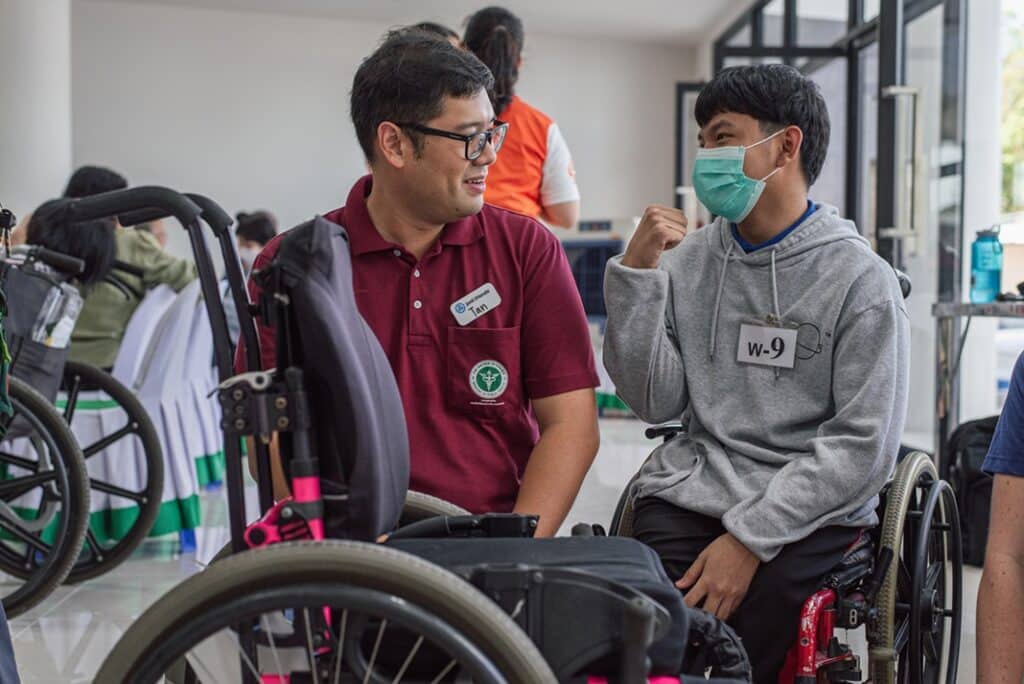
Disability Ministry Revolution
Summary: As a missionary in Thailand, I’ve witnessed the transformative power of disability ministry. In a context where Christianity’s message often falls flat, disability outreach can revitalize churches, change community perceptions, and communicate the gospel in ways that overcome cultural barriers.
By Joseph Tell
The first time I met Erin,* she was in what she would later describe as “the hardest period of [her] life.” She was a single mother of two preteen girls, the younger of whom was born with cerebral palsy and suffered from significant health and cognitive challenges.
In her limited interactions with her neighbors, she regularly received snide comments, unhelpful rebuffs, dismissiveness, and whispers behind her back. None of this surprised her. Most families affected by disabilities report varying degrees of the same treatment throughout Thailand and Southeast Asia.
Because Erin descended from a family of local hill tribe people, many where she lived considered her to not be a true native. This, combined with the stigma of her daughter’s disability, left her ostracized from her local community. Not only was she an outsider, but she (or her daughter) must have done bad things to be punished with the curse of cerebral palsy. Her best hope was to resign herself to a quiet, peaceful life and hope to earn enough good karma to be better off in the next life.
The shame and despondency Erin experienced from being marginalized from her community are familiar to those who work with families affected by disability. The difficulties of wrestling with a lifelong medical condition (the financial strain, health concerns, parental vigilance, barriers to access, etc.),[i] become exponentially bigger when you are told that you are to blame, and you are simply getting what you deserve in life.
Imagine how desperate and dark it would feel to live with this burden! But we know that the hope and love of Jesus shines brightest when the need is greatest. We have seen God use tragic circumstances to transform lives like Erin’s and others.
Incorporating Disability into Existing Ministry
When I first moved to Chiang Mai, Thailand, as a missionary kid with my family in 1998, disability ministry was an unfamiliar field of ministry both to us at the time and the Christian community at large! In retrospect, I find this peculiar when I consider how involved Jesus was with people affected by disability. Twenty-five out of the 34 recorded miracles Jesus performed involved people affected by disability![ii]
Over the following two decades, our team would respond to needs as they arose. Slowly, we saw an entire world of opportunity open to us as word spread and the number and variety of outreach programs grew.

In 2022, my wife and I along with Santiphap Viriothai founded Stronger Together. This organization builds upon our team’s decades of experience and success to propagate similar ministries throughout the region. The following year, we saw more individuals accept Christ as their savior and begin attending church than we have ever seen before. Stronger Together attributes this success to a few key factors. We want to see other ministries replicate and build upon the strategies we have used.
One of Stronger Together’s central strategies is that disability ministry is best enacted when it is incorporated into existing ministries, as opposed to being a standalone, distinct program. In other words, if a church has a primary focus on a particular outreach program, Stronger Together seeks to find ways to expand that ministry to include people with disabilities.
If a church supports single mothers, find mothers with children with disabilities. If they support the impoverished, find those who are destitute with disabilities. If they have a heart for youth or child education, include youth and children with special needs. This harnesses the existing enthusiasm and investment a church body has put into their outreach program and uses that momentum to include families affected by disability.
This strategy has distinct advantages. It sidesteps the largest roadblocks to starting any new ministry within a church – allocation of resources, personnel/recruiting, and the approval process needed for planning and development. These are all important factors which church leaders must take into consideration as they steward and allocate church resources (financial or otherwise). Churches have a responsibility to be prudent with their commitments. Starting a new ministry may require much more than mere financial support to get off the ground!
Existing outreaches are much more likely to continue without involvement from Stronger Together because genuine ownership for the work being done on the ground is already there. As we help existing outreaches grow to include people with disabilities, so does a congregation’s emotional investment in their continuation.
Conversely, when ministries or programs are perceived as being owned externally, with the local church acting in a support role, longevity drops precipitously without continual effort and oversight from the leading agency. Almost all outreach programs dwindle and die as outside funding dries up.[iii] Sustainability must be a major consideration when introducing any new support system in less-resourced environments, especially programs which have a high likelihood of being relied upon by the individuals it serves.
We’ve also seen Stronger Together’s disability ministry model transform churches’ reputations within their communities. Buddhism and Thai cultural identity are so closely intertwined[iv] that most churches face a strong prejudice from the public for being a “foreign influence.”[v]
Historically, Christianity has been viewed as a force of Westernization within Thai culture that erodes their identity through imperializing their population and splitting allegiances. Many churches report being regarded with apprehension and distrust by those in their communities. They often have difficulty building relationships or sharing the gospel message effectively.[vi]
Churches we work with who adopt disability ministry as a primary focus often experience a distinct shift in public perception. Word spreads within the disability community about opportunities the church offers. Additionally, many local municipal and government services will turn to churches to supplement public welfare programs.
As churches meet the needs of their community in ways that local government services haven’t, it builds their reputation. This helps drive additional cooperative efforts between the public sector and our church partners. Stronger Together has even been contacted, on multiple occasions, by governors and municipal leaders to inquire about expanding Stronger Together’s services to their constituents as well. After years of pushing into communities and trying to “break through” cultural barriers, we are now seeing a shift toward being pulled in, with Christian partnerships being sought after!
Overcoming Cultural Barriers
While the Stronger Together model has led to its widespread proliferation, this does not explain why disability ministry has been so effective communicating the gospel and driving up church attendance. Community support programs and evangelism have existed in Thailand for generations, and there is nothing inherently groundbreaking about Christians spreading the hope of the gospel by meeting the needs of marginalized groups within their communities.
Christianity and evangelism have been present and permissible in Thailand for well over 150 years, yet the Christian population of Thailand is still less than 2%.[vii] Despite much effort, traditional evangelical strategies have not been effective at communicating the gospel message in the Thai context. The reasons for this are deep and complex, but many agree on a few primary contributing factors missions work has been working against all these years.[viii]
One major component is understanding how a karmic worldview affects perceptions of the Christian gospel message. In this worldview, cause and effect have a direct correlation: You get what you deserve. External forces do not have much, if any, effect on your individual karmic standing. Therefore, it is difficult for someone with this perspective to understand the relevance of a sacrifice made on a cross 2,000 years ago by a condemned criminal who was from a completely different part of the world. Surely, Jesus’s bad karma was catching up with him, even if we were to accept that he was executed unjustly as an innocent man. Right?!?
Furthermore, for someone who views their life in terms of transactional actions either driving their karmic standing higher or lower, Christianity and Buddhism appear to be extremely comparable, even borderline analogous. These two faiths espouse similar teachings on morality and virtuous living (e.g. honesty, generosity, gentleness, peacefulness, etc.).[ix]
People with a Buddhist upbringing may not understand what they gain by converting to Christianity. This is compounded by the risk of being ostracized from their family and friends for turning their back on their culture and national identity. When we consider all these factors, it is not difficult to understand why traditional gospel messages which first emphasize the hope of Christ, and the new life we receive as believers, has been so ineffectual!
However, communicating the hope of the gospel in light of the problem of disability and human frailty dramatically affect people’s understanding within the cultural context of Thailand and Southeast Asia. It serves as an ideal basis for encapsulating the ways in which Buddhism and Christianity differ.
Buddhism emphasizes personal culpability for your station in life and its circumstances. Having bad karma from past lives’ wrongdoings is understood to be the root cause for being afflicted with disability and hardship. Christianity teaches the opposite. It asserts that God created us on purpose, with purpose. He does not make mistakes, and we are all made in his image (Psalm 139:13-14a, Jeremiah 29:11).
Buddhism teaches us that it is our responsibility to live our lives in such a way that we gain enough merit and improve our karma so that in the next life, we can earn our way into a better life. The message of Jesus refutes this assertion. There is nothing we can do to affect our salvation or eternal security (Romans 3:28, Ephesians 2:8).
The families we meet have spent years, often decades, living with the shame believing their suffering rests squarely on their shoulders. These individuals have been told repeatedly that resignation and “making the best of a bad situation” were the best options available to them.
This message of hope and acceptance from a community that loves them with compassion, not pity, can feel earth-shaking. It can radically change their understanding of what the Bible is trying to say! To be told that, yes, their disability is a part of who they are, but it is not what defines them, and it does not affect their worth or value in God’s eyes – that is the message of hope people respond to. It is the driving force behind this movement!
Demonstrating the Gospel
This hope, and life it brings, was what Erin discovered at her first church event sponsored by Stronger Together. Her life until that point was marked by discrimination and exclusion. Her response to a loving and welcoming community for her and her daughters was like receiving a first sip of water in the desert.
Accepting Christ as her savior was a natural next step, and she quickly asked to be baptized. After moving away from her village to be closer to the church, she took up sewing and handicrafts to earn a living from home. This enabled her to continue to care for her youngest daughter and become more involved and proactive in the community.
Her life has been completely transformed. She now runs workshops to teach other parents – especially single mothers – how to make the same handicrafts she sells so that they, too, can continue to work while caring for their children. She is a community leader and an advocate for those who have spent their lives in the shadows. Her message of hope and transformation has inspired countless people. She is not shy about giving credit to Jesus as the bedrock upon which this hope is built.
Our hope is that Erin’s story, along with hundreds like her, can provide insight and understanding about how we can all better serve as ambassadors of Christ here on Earth. We believe that disability, and its inclusion in ministry, has a unique and profound capacity to communicate the gospel with a fresh perspective and be a powerful catalyst for worldwide evangelistic efforts. We don’t need to look further than Jesus’ own ministry to understand how pivotal disability can be in demonstrating the power and life-changing nature of the gospel!
We are always happy to connect with others who are interested in finding out more or collaborating with us! Find us online at wheelchairproject.org.
* Pseudonym used for security purposes.
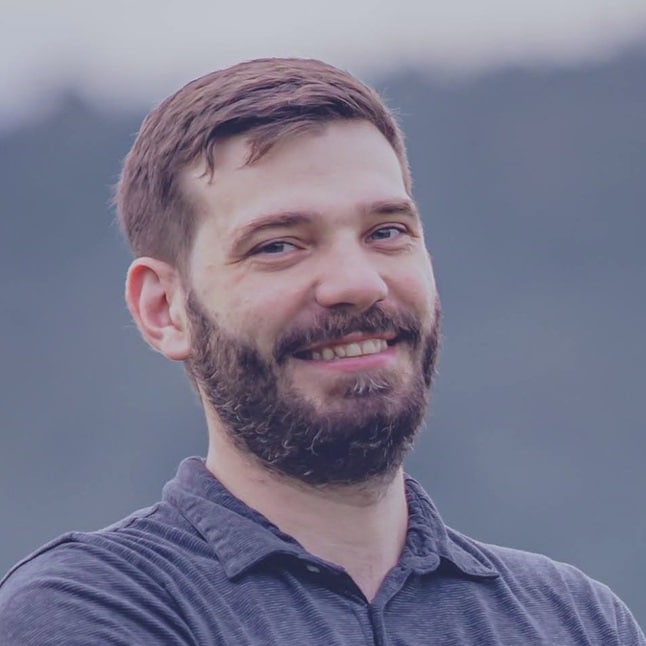
Joseph Tell (jtell@wheelchairproject.org) and his wife, Jasmine, work in Chiang Mai, Thailand, as missionaries serving people affected by disabilities. Joseph serves as co-director of Stronger Together alongside Santiphap Viriothai. He is also the project manager of the RICD Wheelchair Project alongside a dedicated team of professionals and volunteers. Joseph and Jasmine have dedicated their lives to serving families affected by disabilities and pursuing their vision for equal opportunity for all.
[i] Asghar Zaidi and Tania Burchardt, “Comparing Incomes When Needs Differ: Equivalization for the Extra Costs of Disability in the U.K.,” Review of Income and Wealth 51, no. 1 (March 2005): 89–114, https://doi.org/10.1111/j.1475-4991.2005.00146.x. Zachary A. Morris, Stephen V. McGarity, Nanette Goodman, and Asghar Zaidi, “The Extra Costs Associated with Living with a Disability in the United States,” Journal of Disability Policy Studies 33, no. 3 (September 9, 2021): 104420732110435, https://doi.org/10.1177/10442073211043521.
[ii] Mark Arnold, “Accessible Jesus: Encounters with People with Special Needs,” Not Alone: Special-Needs Parenting, September 18, 2018, https://www.patheos.com/blogs/notalonespecialneedsparenting/2018/09/accessible-jesus-encounters-with-people-with-special-needs/.
[iii] Daniel Rickett, “Lean on Me (Part 1): The Problem of Dependency,” EMQ Magazine, January 1, 2012, https://missionexus.org/lean-on-me-part-1-the-problem-of-dependency/.
[iv] Wikipedia, “Buddhism in Thailand,” March 15, 2020, https://en.wikipedia.org/wiki/Buddhism_in_Thailand.
[v] Adam Phillips, “Christianity in Thailand (2024),” The Witness, March 11, 2024, https://thewitness.org/christianity-in-thailand/.
[vi] Wikipedia, “Christianity in Thailand,” March 6, 2021, https://en.wikipedia.org/wiki/Christianity_in_Thailand.
[vii] Wikipedia, “Christianity in Thailand.”
[viii] Satanun Boonyakiat, “The Essentiality of Disability Ministry for the Church,” Saengtham College Journal 12, no. 2 (2020): 5–16, https://so01.tci-thaijo.org/index.php/scj/article/view/245854.
[ix] David Alan, “Buddhism & Christianity in Thailand – Religious Similarities,” Discover Sakon Nakhon, August 3, 2023, https://mysakonnakhon.com/buddhism-and-christianity-in-thailand-religious-similarities/.
EMQ, Volume 60, Issue 4. Copyright © 2024 by Missio Nexus. All rights reserved. Not to be reproduced or copied in any form without written permission from Missio Nexus. Email: EMQ@MissioNexus.org.





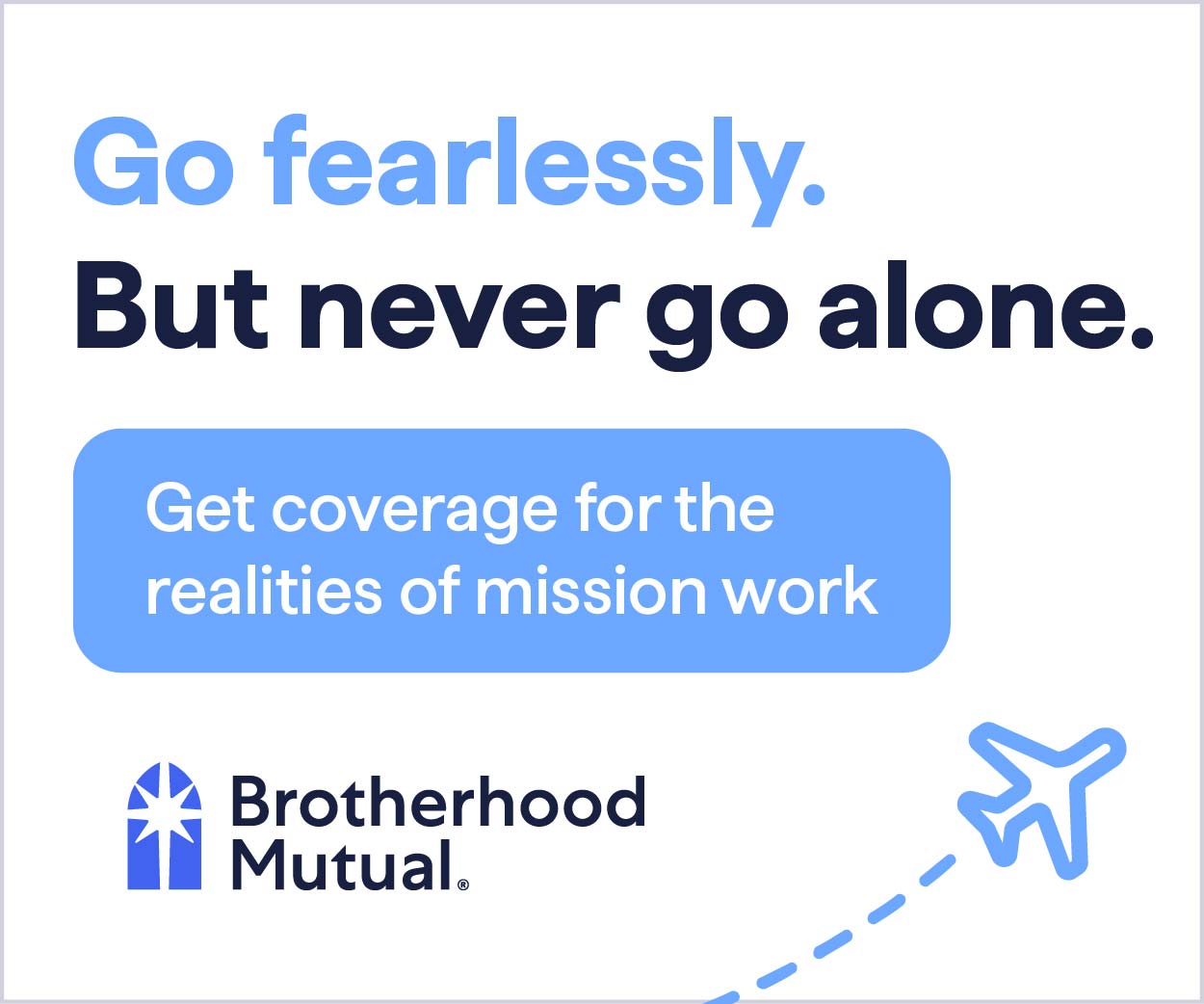
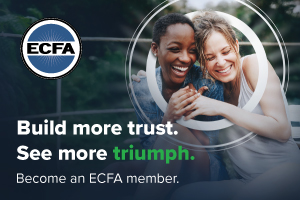
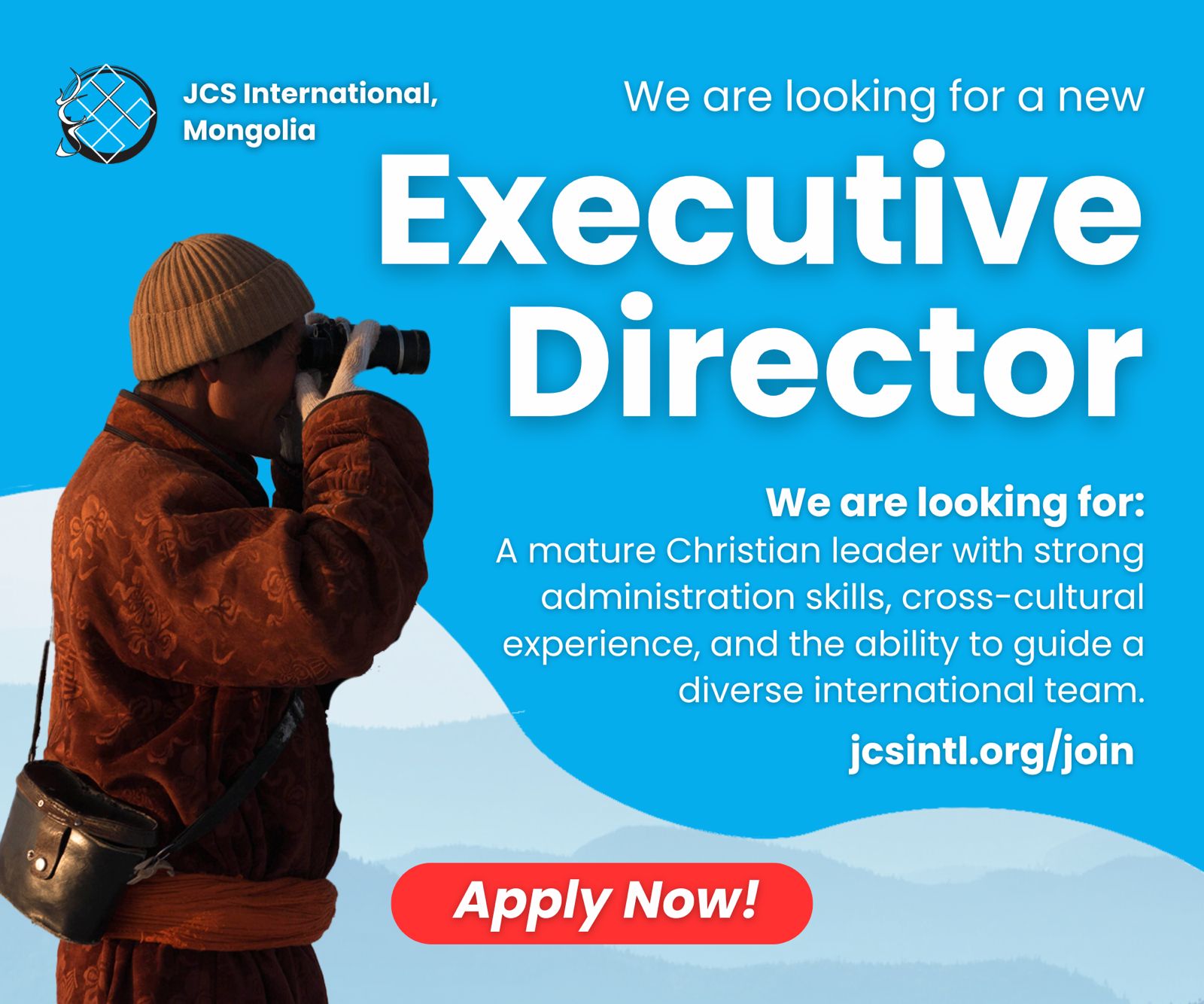
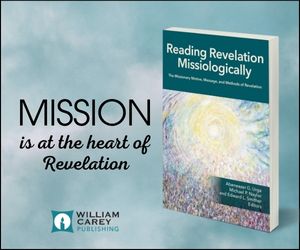
Responses